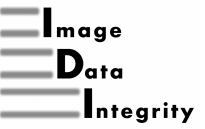About us
 Mike Rossner
Mike Rossner
Image Data Integrity, Inc. (IDI) provides consultation for concerns related to biomedical image data manipulation for institutions, publishers, journals, biotech companies, and legal counselors. We provide a variety of services - from rendering opinions about specific images, to screening all images in selected manuscripts or published articles, to evaluating source data underlying images in prepared figures, to communicating with authors, to consulting on the consequences of an investigation. If you have any questions related to any of these tasks, please contact us.
IDI President Mike Rossner was the Managing Editor of The Journal of Cell Biology (JCB) from 1997 to 2007 and Executive Director of The Rockefeller University Press from 2006 to 2013. In 2002, he initiated a policy whereby all image data in all manuscripts accepted for publication were screened for evidence of manipulation. In his time at JCB he was involved in the handling of over 400 cases of suspected image manipulation where source data were requested from the authors. In cases where the manipulation affected the interpretation of the data, the acceptance of the manuscript was revoked.
In 2004, Mike and co-author Ken Yamada published an article entitled "What's in a picture? The temptation of image manipulation" with guidelines for handling digital image data. The full text of that article has been downloaded over 250,000 times from the JCB website, and it is still a seminal resource for education in the responsible conduct of research. The techniques used for image screening were described in an article in "The Scientist" entitled "How to guard against image fraud."
Mike was awarded the SPARC Innovator Award in July, 2009 for his efforts to promote data integrity and public access to scholarly research. He shared the SPARC Innovator Award in July, 2013 for being a co-founder of the San Francisco Declaration on Research Assessment.
IDI President Mike Rossner was the Managing Editor of The Journal of Cell Biology (JCB) from 1997 to 2007 and Executive Director of The Rockefeller University Press from 2006 to 2013. In 2002, he initiated a policy whereby all image data in all manuscripts accepted for publication were screened for evidence of manipulation. In his time at JCB he was involved in the handling of over 400 cases of suspected image manipulation where source data were requested from the authors. In cases where the manipulation affected the interpretation of the data, the acceptance of the manuscript was revoked.
In 2004, Mike and co-author Ken Yamada published an article entitled "What's in a picture? The temptation of image manipulation" with guidelines for handling digital image data. The full text of that article has been downloaded over 250,000 times from the JCB website, and it is still a seminal resource for education in the responsible conduct of research. The techniques used for image screening were described in an article in "The Scientist" entitled "How to guard against image fraud."
Mike was awarded the SPARC Innovator Award in July, 2009 for his efforts to promote data integrity and public access to scholarly research. He shared the SPARC Innovator Award in July, 2013 for being a co-founder of the San Francisco Declaration on Research Assessment.
Mike Rossner's publication list
|
|
Media coverage
Medscape (March 12, 2024)
The Scientist (February 15, 2024)
Harvard Crimson (February 1, 2024).
Harvard Crimson (January 12, 2024)
Cosmos Magazine (January 5, 2024)
Science News (November 13, 2023)
The New York Times (July 19, 2023)
The Scholarly Kitchen (January 10, 2023)
STAT News (January 10, 2023)
STAT News (December 2, 2022)
STAT News (November 30, 2022)
Nature (December 21, 2021)
Wall Street Journal (November 18, 2021)
Retraction Watch (September 21, 2021)
Chemistry World (November 22, 2019)
Nature (November 19, 2019)
Science News (September 25, 2019)
STAT (November 21, 2018)
HEADT (October 9, 2018)
Chemistry World (July 20, 2018)
Retraction Watch (June 17, 2018)
The Biologist (June 13, 2018)
Retraction Watch (March 22, 2018)
Nature (June 28, 2017)
Science Careers (October 11, 2016)
The Scholarly Kitchen (May 2, 2016)
Nature (April 22, 2016)
Retraction Watch (April 21, 2016)
Genome Web (April 21, 2016)
Journal of Neurochemistry (March 21, 2016)
Retraction Watch (February 24, 2016)
Physiology News (Summer, 2014)
United Academics (October 16, 2013)
Chemistry World (July 18, 2013)
The Scholarly Kitchen (July 11, 2013)
The Economist (March 9, 2013)
The Guardian (September 13, 2012)
Retraction Watch (November 18, 2010)
National Academy of Sciences (July 22, 2009)
The Chronicle of Higher Education (June 6, 2008)
The Scientist (June, 2008)
The New York Times (October 2, 2007)
BMJ (March 22, 2007)
Science (December 22, 2006)
National Public Radio (March 13, 2006)
Harvard Focus Magazine (February 10, 2006)
The New York Times (January 24, 2006)
The Boston Globe (January 11, 2006)
Nature (April 21, 2005)
The Scientist (February 15, 2024)
Harvard Crimson (February 1, 2024).
Harvard Crimson (January 12, 2024)
Cosmos Magazine (January 5, 2024)
Science News (November 13, 2023)
The New York Times (July 19, 2023)
The Scholarly Kitchen (January 10, 2023)
STAT News (January 10, 2023)
STAT News (December 2, 2022)
STAT News (November 30, 2022)
Nature (December 21, 2021)
Wall Street Journal (November 18, 2021)
Retraction Watch (September 21, 2021)
Chemistry World (November 22, 2019)
Nature (November 19, 2019)
Science News (September 25, 2019)
STAT (November 21, 2018)
HEADT (October 9, 2018)
Chemistry World (July 20, 2018)
Retraction Watch (June 17, 2018)
The Biologist (June 13, 2018)
Retraction Watch (March 22, 2018)
Nature (June 28, 2017)
Science Careers (October 11, 2016)
The Scholarly Kitchen (May 2, 2016)
Nature (April 22, 2016)
Retraction Watch (April 21, 2016)
Genome Web (April 21, 2016)
Journal of Neurochemistry (March 21, 2016)
Retraction Watch (February 24, 2016)
Physiology News (Summer, 2014)
United Academics (October 16, 2013)
Chemistry World (July 18, 2013)
The Scholarly Kitchen (July 11, 2013)
The Economist (March 9, 2013)
The Guardian (September 13, 2012)
Retraction Watch (November 18, 2010)
National Academy of Sciences (July 22, 2009)
The Chronicle of Higher Education (June 6, 2008)
The Scientist (June, 2008)
The New York Times (October 2, 2007)
BMJ (March 22, 2007)
Science (December 22, 2006)
National Public Radio (March 13, 2006)
Harvard Focus Magazine (February 10, 2006)
The New York Times (January 24, 2006)
The Boston Globe (January 11, 2006)
Nature (April 21, 2005)

